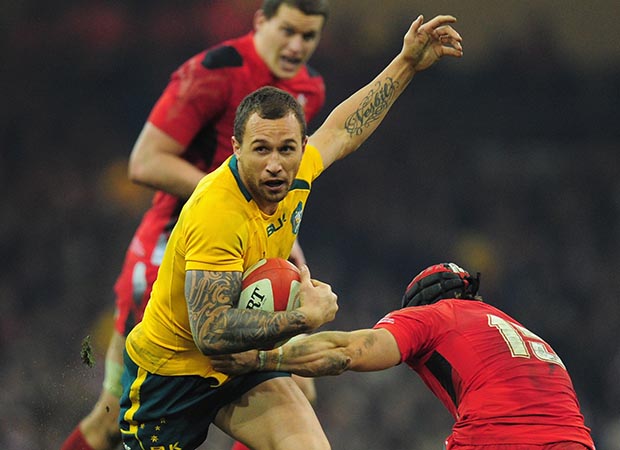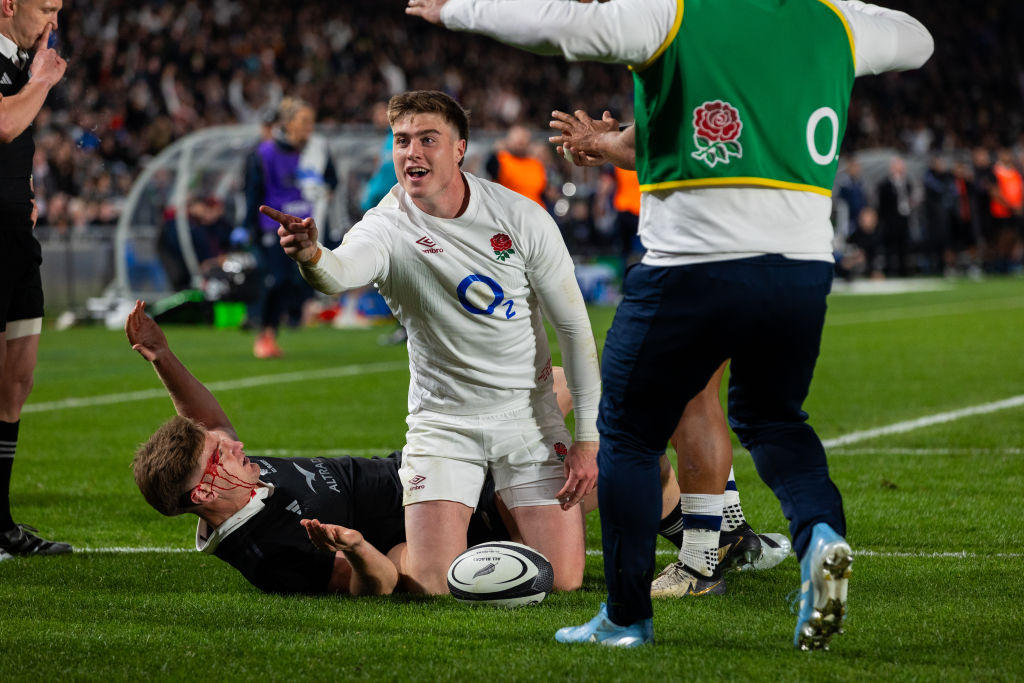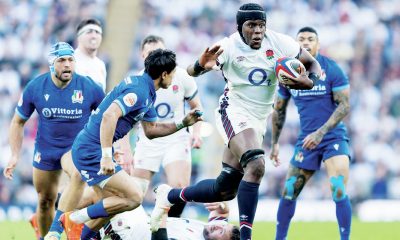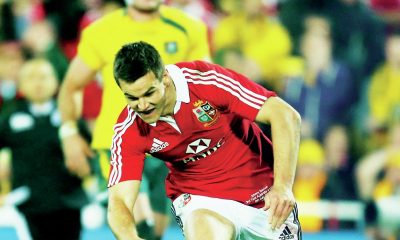
 If we know one thing about Australia it’s that they frequently get it right for World Cups. A lot of their coaches have had an edge about them, and they tend to make good decisions at the right times. That was true of Wallaby coaches like Bob Dwyer, Rod Macqueen and Eddie Jones, and at one stage it looked as if Robbie Deans might fit the mould even though he is a Kiwi.
If we know one thing about Australia it’s that they frequently get it right for World Cups. A lot of their coaches have had an edge about them, and they tend to make good decisions at the right times. That was true of Wallaby coaches like Bob Dwyer, Rod Macqueen and Eddie Jones, and at one stage it looked as if Robbie Deans might fit the mould even though he is a Kiwi.
However, ultimately Deans had difficulty bridging the gap between the different cultures in Canterbury (NZ), where you know the quality will be strong across the board, and Aussie rugby, where there are plenty of gems but spread across a much wider landscape.
Now the coach hunting World Cup glory for the Wallabies is Michael Cheika, who took Leinster from chokers to becoming champions of Europe, and then did the same by taking the Waratahs to their first Super 15 title last year.
Just as the Aussies have always had good coaches, they have also had plenty of talented players, although sometimes I think they use playbooks too much and over-analyse the game. They have these very exciting athletic players who want to express themselves, but since the 1999 World Cup success under Macqueen – which was based on very structured patterns of play and outstanding defence – they have been stuck between playing what they see, and doing what the play-book dictates.
Aussie players like Quade Cooper and Kurtley Beale are instinctive, and sometimes they overplay their hand, but it’s about striking a balance – and I sense that Cheika can do that. He knows that you cannot throw ten miracle passes and expect all ten to work, but he is the sort of coach who will at least give Cooper and Beale the leeway to throw a couple.
I’ve always looked at the Australian back-line and given thanks that they do not cut loose all the time, because when they are at their best they are devastating. A couple of seasons ago Cooper was sublime against Wales in Cardiff, and Israel Folau showed what a fantastic footballer and finisher he is. It was great to watch.
If you can pick from a backline which contains not just Folau but Cooper, Beale, Adam Ashley-Cooper, Matt Giteau, Drew Mitchell, Tevita Kuridrani, Henry Speight, Will Genia, Matt Toomua and Joe Tomane – and can afford to leave out James O’Connor and Digby Ioane – then you know you are in business. It is hard to think of a better backline in world rugby.
That’s why it’s extraordinary that last autumn England knew that all they had to do was play a territorial game to win the match, simply because Australia play far too much rugby in their own half. How the Wallabies have come to believe that they can consistently shred international defences by attacking from their own half with ball-in-hand is astounding, because trying to break through a well-organised defensive line in your own territory puts huge pressure on you.
One of the reasons they play in this way is because Folau is not a natural kicker, and although Ashley-Cooper and O’Connor can kick, you need three top-class kickers in your backline to play a territorial game. However, even if you do not have that luxury you can still play smart rugby in defence like New Zealand do. You don’t see the All Blacks trying to play nine phases out of their own half like the Wallabies. Instead, they box-kick and chase to relieve the pressure.
If you get slow ball deep in your own half then you cannot afford to put it through your hands as often as Australia do – because as soon as other teams see it they jump in and just press harder to force mistakes.
With players like fly-half Bernard Foley and Toomua the Wallabies have good enough game-managers to start playing in the right areas, although the flip side is that Cooper and Beale will always look to take risks and run from deep rather than rely on the playbook.
I get it if you attack for one, two or three phases before kicking for position, but it’s naive to think you can play international rugby in the same way that some Aussie provincial teams do in Super 15. For instance, New Zealand do not play like the Hurricanes or the Highlanders, they play a mix of different styles, just as England don’t play like Bath or Exeter, and South Africa don’t play like the Stormers. The international game is smarter than that, because there is so much analysis and any errors are likely to be punished severely.
Cheika has the same difficulty with the Australian Super franchises that Stuart Lancaster has with Premiership clubs, because the Brumbies, Waratahs, Rebels, Reds and Force have five different ways of playing.
However, my hunch is that if Australia play less in their own half during this Rugby Championship, and kick-chase more to put pressure on their opponents, then they could be in business. The mistake they must avoid is that when a side like South Africa kick the ball back, they do not consider it their duty to counter-attack from deep. Don’t be afraid to kick it back to them again.
Australia have threats everywhere in their backline, but they must avoid giving away easy points, or easy territory. Rather than forcing the game, be smart. Instead, the Aussies should look to keep it simple and strike from first phase attacks because of the talent they’ve got in their backline. They should recognise that the more phases you’ve got the more awkward it is to get the right people in the right places on the pitch.
Australia cannot afford to be as easy to work out in the Rugby Championship as they were against England at the end of last year. It will be interesting to see what Cheika’s influence is now that he has got his feet under the table. His track record indicates that he knows how to get the best out of his players, because he did so with Leinster and the Waratahs. I expect him to do the same with the Wallabies.
The Suncorp Stadium in Brisbane is a big rugby arena, and if Australia play smart, and their forwards produce good ball, then they should beat South Africa next Saturday. They’ve had a bit of a break with the Waratahs and Brumbies going out in the semi-finals of the Super 15, and you’d expect them to win quite comfortably at home.
That’s mainly because the Aussie players know from the Super 15 that there’s nothing from South Africa that will be a shock, and that they cannot beat. There is no side in the world more predictable than the Springboks, so expect Cheika’s Wallabies to be well prepared.

1 Comment
You must be logged in to post a comment Login
Leave a Reply
Cancel reply
Leave a Reply
You must be logged in to post a comment.

British and Irish Lions
From Leicester reject to a British and Irish Lion: Tommy Freeman’s stellar rise
Latest News
Steve Diamond: Franchise league a good idea

International Rugby
Touring Japan with Wales is my goal says Dan Edwards
























Pingback: บับเบิ้ล